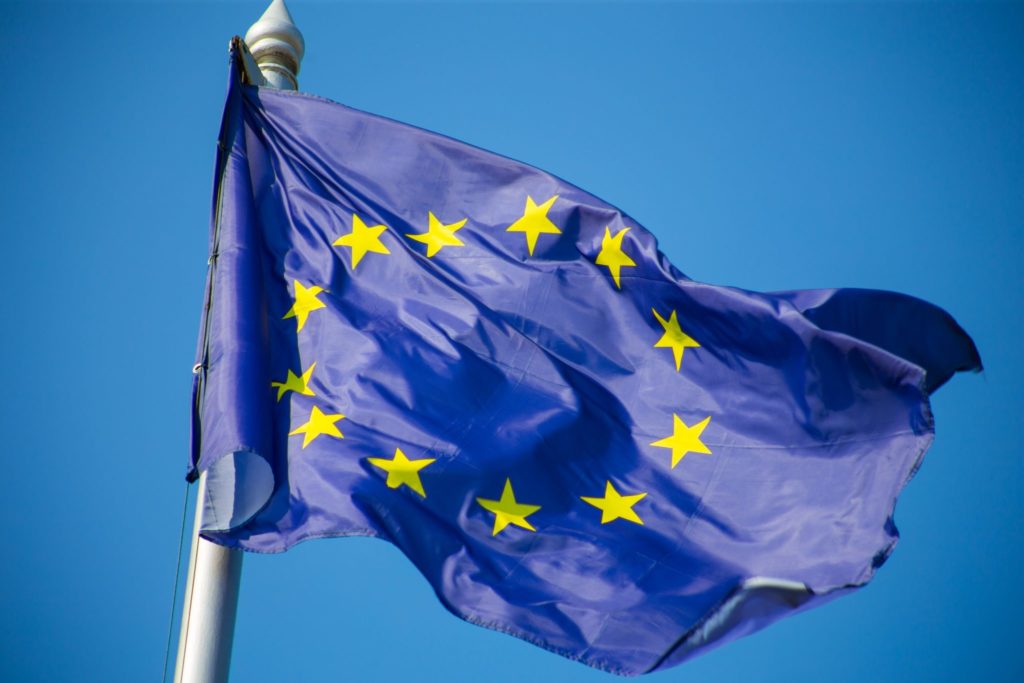Highlight 4/2024 – The European Union as a Force for Peace and Security
Daniel Daran Crentsil, 19 January 2024

In the aftermath of World War II, European leaders embarked on a visionary journey to foster lasting peace and cooperation, aiming to eradicate the root causes of conflict and build a united Europe. The European project, with its origins traced back to the pivotal Schuman Declaration in 1950, has evolved significantly over the years. Today, the European Union (EU) stands as a symbol of peace, solidarity, and collaborative efforts among its member nations.
The Schuman Declaration, delivered by French Foreign Minister Robert Schuman on May 9, 1950, marked a turning point in European history. Proposing the creation of the European Coal and Steel Community (ECSC), the declaration aimed to bind nations together through economic interdependence, reducing the likelihood of future conflicts. The ECSC, founded in 1951 by six nations (Belgium, Germany, France, Italy, Luxembourg and the Netherlands), laid the foundation for supranational European institutions that would eventually culminate in the modern-day European Union.
The European Union’s primary objective has always been to preserve peace, strengthen international security, and promote cooperation among nations. The Common Foreign and Security Policy (CFSP), established in 1993 under the Maastricht Treaty and updated by the Lisbon Treaty in 2009 under Article 42.7 of the Treaty on the European Union (TEU), reflects this commitment. Its primary objectives encompass the preservation of peace, the enhancement of global security, and the advancement of international collaboration, democracy, the rule of law, as well as the protection of human rights and fundamental freedoms. Through the CFSP, the European Union strives to present a united front on the global stage, demonstrating a collective commitment to shared values and principles. Furthermore, the EU Global Strategy on Foreign and Security Policy, adopted in 2016, focuses on building resilience, adopting an integrated approach to conflict, and boosting strategic autonomy.
The Common Security and Defence Policy (CSDP), which is integral to the EU’s CFSP, emerged as a vital framework for member states to develop a European strategic culture of security and defence. Since the Russian war of aggression against Ukraine in 2022, the CSDP has experienced rapid development. The geopolitical reset in Europe has spurred momentum for the creation of an EU Defence Union.
Unveiled in response to the evolving security landscape, the EU Strategic Compass represented a significant milestone in the European Union’s quest for a robust security and defence framework by the year 2030. This strategic initiative, driven by the imperative of adapting to geopolitical shifts, outlines a vision characterized by unity, solidarity, and determination.
The strengthening of defence capabilities of the EU is not only seen as a response to immediate threats but a proactive measure to contribute positively to global and transatlantic security. While the Strategic Compass acknowledges NATO’s foundational role in collective defence, it underscores the complementary nature of a more robust EU in this domain. The envisioned strategic compass emerges as a tactical response to new challenges, demonstrating the Union’s commitment to upholding the global rules-based order with the United Nations at its core.
By investing in defence capabilities and bolstering resilience, the EU aims not only to protect its member states but also to project stability in an increasingly uncertain world. The ambition to intensify support for the global rules-based order aligns with the EU’s broader commitment to fostering international peace and stability.
In March 2021, the EU Council established the European Peace Facility (EPF), an off-budget instrument designed to enhance the EU’s ability to prevent conflicts, build peace, and strengthen international security. The EPF allows financing for operational actions with military or defence implications under the CFSP, demonstrating the EU’s commitment to proactive peacekeeping and crisis management. As of March 2023, around 4,000 military and civilian personnel from the European Union are actively engaged in CSDP missions and operations across three continents. Their dedicated efforts aim to foster global stability while simultaneously enhancing the safety and security of Europe.
In the aftermath of the terrorist attacks in Madrid on 11th March, 2004, European Union leaders responded decisively by adopting a comprehensive declaration on combatting terrorism. A key outcome of this response was the establishment of the position of EU Counter-Terrorism Coordinator. This coordinating role encompasses various critical responsibilities, including the oversight of counter-terrorism efforts within the EU, the formulation and presentation of policy recommendations, and the proposal of priority areas for action to the Council.
From its origins as a project for post-war peace, the European Union has evolved into a powerful force for international security and cooperation. The establishment of various mechanisms such as the Strategic Compass, the EU Counter-Terrorism Coordinator and the European Peace Facility exemplify the EU’s commitment to adapting to the changing geopolitical landscape, safeguarding its values, and contributing to global peace and stability. As the EU continues to navigate complex challenges, its journey remains a testament to the enduring spirit of unity, solidarity, and determination. The European Union stands as a beacon of hope, showcasing the potential for collaborative efforts to overcome historical divisions and build a more secure and peaceful world.
Daniel Daran Crentsil, Highlight 4/2024 – The European Union as a Force for Peace and Security, 19 January 2024, available at www.meig.ch
The views expressed in the MEIG Highlights are personal to the authors and neither reflect the positions of the MEIG Programme nor those of the University of Geneva.
